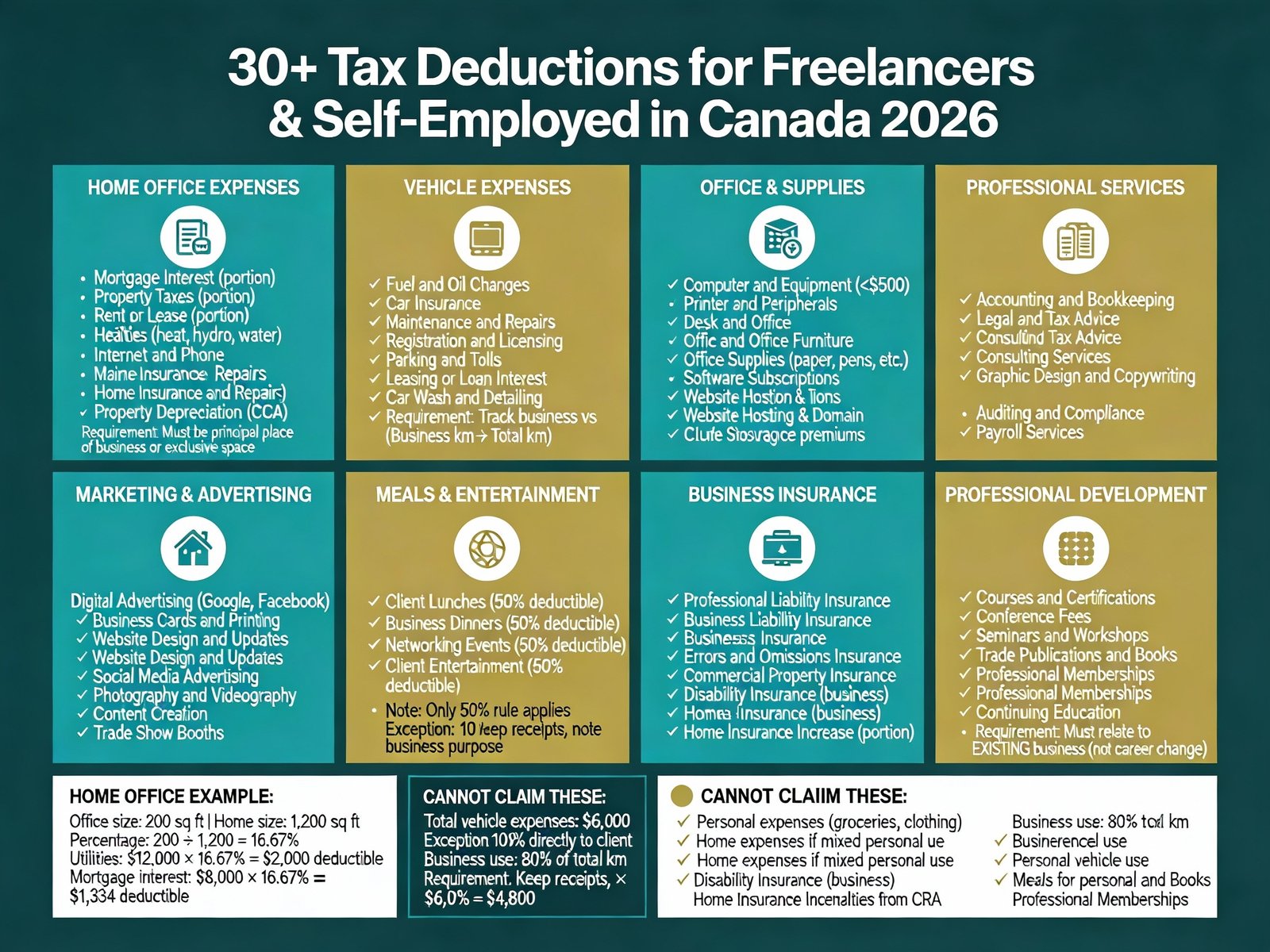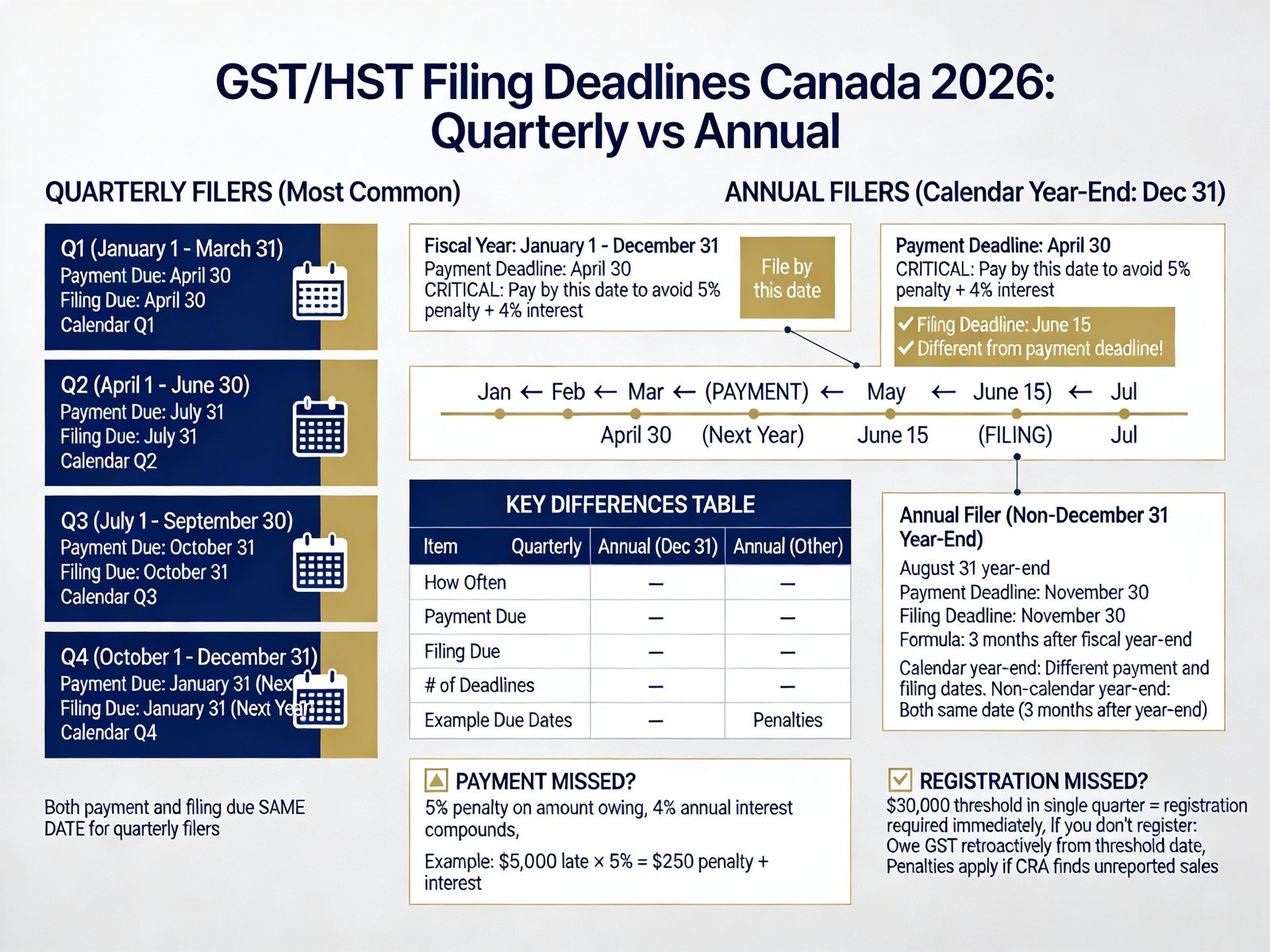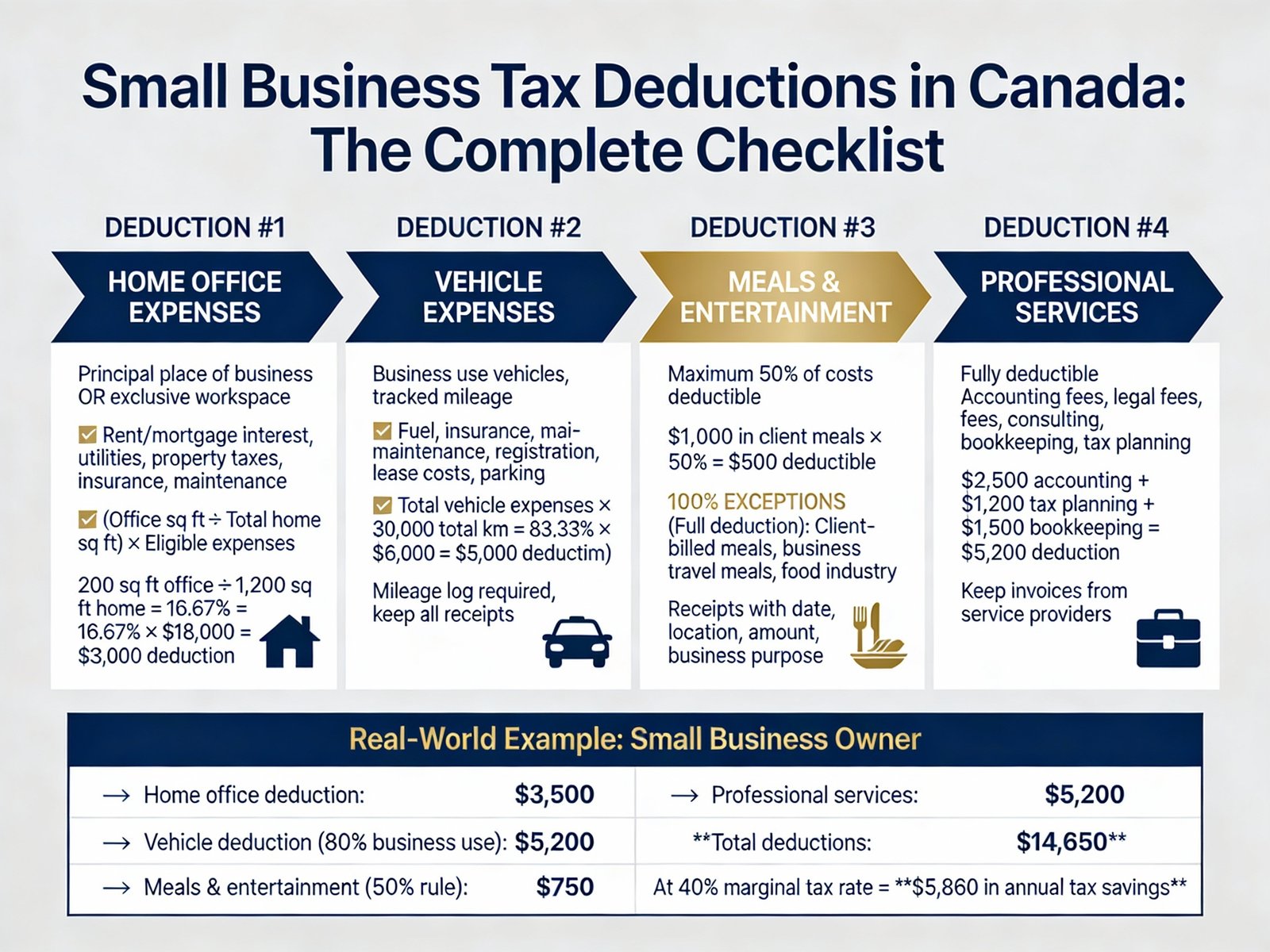Raising a family comes with its own set of financial challenges and rewards. Fortunately, both the federal and Alberta provincial governments offer a range of tax credits and benefits to support families. These programs aim to alleviate some of the financial burdens associated with child care, parental leave, and general family expenses. This guide provides an overview of the key tax credits and benefits available to families in Alberta, outlining eligibility criteria and application processes.

1. Child Care Expense Deduction
Overview
The Child Care Expense Deduction allows parents or guardians to deduct eligible child care expenses from their income, reducing their overall taxable income. This deduction is available through the federal tax system and applies to expenses incurred for the care of children under the age of 16 or children with disabilities.
Eligible Expenses
- Daycare Centers: Fees paid to licensed daycare facilities.
- Caregivers: Payments to babysitters, nannies, or relatives providing child care (who are not the parent of the child).
- Day Camps and Sports Schools: Costs for day camps that provide child care services.
- Boarding Schools and Overnight Camps: A portion of fees paid can be claimed, subject to specific limits.
Deduction Limits
- Children Under 7: Up to $8,000 per child.
- Children Aged 7 to 16: Up to $5,000 per child.
- Children with Disabilities: Up to $11,000 per child eligible for the Disability Tax Credit.
Eligibility Criteria
- Earned Income: The deduction is available to the lower-income spouse or common-law partner, based on earned income.
- Employment or Education: Expenses must have been incurred to allow the parent or guardian to work, carry on a business, attend school, or conduct research.
Application Process
- Tax Filing: Claim the deduction on Form T778 – Child Care Expenses Deduction when filing your personal income tax return.
- Documentation: Keep all receipts and documentation for expenses claimed, including the caregiver’s name, address, Social Insurance Number (SIN), and the amount paid.
2. Canada Child Benefit (CCB)
Overview
The Canada Child Benefit is a tax-free monthly payment made to eligible families to help with the cost of raising children under 18 years of age. Administered by the federal government, the CCB is income-tested, meaning the amount depends on your family’s net income.
Benefit Amounts (as of July 2023)
- Base Amount: Up to $6,997 per year for each child under 6.
- For Children Aged 6 to 17: Up to $5,903 per year for each child.
Eligibility Criteria
- Residency: Must be a resident of Canada for tax purposes.
- Primary Caregiver: The person primarily responsible for the care and upbringing of the child.
- Income Requirements: Benefit amounts decrease as family net income increases.
Application Process
- Automatic Enrollment: You may be automatically enrolled when registering the birth of your child.
- Apply Online: Use the CRA’s My Account service or apply using Form RC66 – Canada Child Benefits Application.
- Tax Filing: Both you and your spouse or common-law partner must file tax returns every year to continue receiving the benefit.
3. Alberta Child and Family Benefit (ACFB)
Overview
The Alberta Child and Family Benefit combines the former Alberta Child Benefit and the Alberta Family Employment Tax Credit into one program. It provides direct financial assistance to lower- and middle-income families with children under 18.
Benefit Amounts
- Base Component: Available to families with incomes below $24,467, regardless of employment income.
- Working Component: Provides additional benefits to families with employment income over $2,760.
Maximum Annual Benefits
- One Child: Up to $1,330
- Two Children: Up to $1,995
- Three Children: Up to $2,660
- Four or More Children: Up to $3,325
Eligibility Criteria
- Residency: Must be a resident of Alberta.
- Children Under 18: Must have one or more children under the age of 18.
- Income Requirements: Family net income must be below a certain threshold.
Application Process
- Automatic Enrollment: No separate application is required. Eligibility is determined when you apply for the Canada Child Benefit.
- Tax Filing: Annual tax returns must be filed to assess eligibility and benefit amounts.
4. Parental Leave Benefits under Employment Insurance (EI)
Overview
The Employment Insurance (EI) Parental Benefits provide financial assistance to parents who are away from work to care for a newborn or newly adopted child. There are two options:
- Standard Parental Benefits: Up to 40 weeks, with one parent receiving a maximum of 35 weeks.
- Extended Parental Benefits: Up to 69 weeks, with one parent receiving a maximum of 61 weeks.
Benefit Amounts
- Standard Benefits: 55% of average insurable weekly earnings, up to a maximum amount (as of 2023, up to $650 per week).
- Extended Benefits: 33% of average insurable weekly earnings, up to a maximum amount (as of 2023, up to $390 per week).
Eligibility Criteria
- Insurable Employment: Must have accumulated at least 600 hours of insurable employment during the qualifying period.
- Parental Responsibilities: Must be a parent caring for a newborn or newly adopted child.
- Reduction in Earnings: Must experience a reduction of more than 40% in normal weekly earnings.
Application Process
- Apply Online: Submit an application through the Service Canada website as soon as you stop working.
- Required Documents:
- Record of Employment (ROE) from your employer.
- Proof of Birth or Adoption: Birth certificate or adoption papers.
- Waiting Period: There is typically a one-week unpaid waiting period before benefits begin.
5. Maternity Benefits under Employment Insurance (EI)
Overview
Maternity Benefits are available to individuals who are pregnant or have recently given birth, including surrogate mothers. These benefits provide financial support for up to 15 weeks.
Benefit Amounts
- Rate: 55% of average insurable weekly earnings, up to the maximum amount (as of 2023, up to $650 per week).
Eligibility Criteria
- Insurable Employment: At least 600 hours of insurable employment during the qualifying period.
- Pregnancy: Must be pregnant or have recently given birth.
- Reduction in Earnings: Must have a reduction of more than 40% in normal weekly earnings.
Application Process
- Timing: You can apply as early as 12 weeks before your due date or the date you give birth, and up to 17 weeks after the birth.
- Process: Similar to parental benefits, apply online through Service Canada and provide the necessary documentation.
6. Child Disability Benefit (CDB)
Overview
The Child Disability Benefit is a tax-free benefit for families caring for a child under age 18 who is eligible for the Disability Tax Credit.
Benefit Amount
- Maximum Annual Amount: Up to $2,985 per eligible child (as of 2023).
Eligibility Criteria
- Disability Tax Credit: The child must be eligible for the Disability Tax Credit.
- Canada Child Benefit: Must be eligible for the Canada Child Benefit.
- Income-Tested: Benefit amounts are based on family net income.
Application Process
- Disability Tax Credit Certificate: Complete Form T2201 and have it certified by a medical practitioner.
- CRA Assessment: The CRA will assess eligibility upon receiving the form.
- Automatic Payment: Once approved, the benefit is included in the monthly Canada Child Benefit payment.
7. Child Care Subsidy Program (Alberta)
Overview
Alberta’s Child Care Subsidy Program assists eligible families with the cost of child care for children up to 12 years old enrolled in licensed facilities.
Subsidy Amounts
- Vary based on family income, number of children, and type of child care program.
Eligibility Criteria
- Residency: Must be a resident of Alberta.
- Employment or Education: Parents must be working, seeking work, or attending school.
- Income Requirements: Family income must be below specific thresholds.
- Child Care Facility: Must use a licensed child care provider.
Application Process
- Online Application: Apply through the Alberta Child Care Subsidy Application portal.
- Documentation:
- Proof of income (e.g., tax returns, pay stubs).
- Employment or education verification.
- Child care provider information.
- Renewal: Subsidy approvals are typically valid for 12 months and require annual renewal.
8. Canada Workers Benefit (CWB)
Overview
The Canada Workers Benefit is a refundable tax credit that supplements the earnings of low-income workers.
Benefit Amounts
- Basic Amount: Up to $1,428 for single individuals without children.
- Families: Up to $2,461 for families.
Eligibility Criteria
- Income Thresholds: Must have working income over $3,000 and below maximum net income thresholds.
- Residency: Must be a resident of Canada for income tax purposes.
- Exclusions: Full-time students and individuals incarcerated for more than 90 days are not eligible.
Application Process
- Tax Filing: Claim the CWB on your annual tax return using Schedule 6.
- Advance Payments: Apply for advance payments to receive benefits throughout the year.
9. Adoption Expenses Tax Credit
Overview
The Adoption Expenses Tax Credit allows adoptive parents to claim eligible adoption expenses related to the adoption of a child under 18.
Eligible Expenses
- Agency fees, court costs, legal fees, travel expenses, and other related costs.
Maximum Claim
- Up to $17,131 per child for the 2023 tax year.
Eligibility Criteria
- Child Under 18: The adopted child must be under 18 years of age.
- Eligible Expenses: Expenses must be directly related to the adoption process.
Application Process
- Tax Filing: Claim the expenses on Line 31300 of your tax return.
- Documentation: Keep all receipts and documentation of expenses incurred.
Conclusion
Navigating the array of tax credits and benefits available to families in Alberta can be complex. However, understanding these programs can significantly reduce financial stress and provide valuable support for your family’s needs. By familiarizing yourself with the eligibility criteria and application processes, you can take full advantage of the assistance available to you.
How Bomcas Canada Accounting Firm Can Help
At Bomcas Canada Accounting Firm, we are committed to helping families in Edmonton and across Alberta maximize their tax benefits and navigate government programs with ease.
- Personalized Consultation: We’ll assess your family’s unique situation to identify all the credits and benefits you are eligible for.
- Application Assistance: Guide you through the application processes to ensure accuracy and completeness.
- Tax Preparation and Planning: Optimize your tax returns to maximize refunds and minimize liabilities.
- Ongoing Support: Keep you informed about changes in tax laws and new benefits that may affect your family.
Contact Us Today
Secure your family’s financial well-being by leveraging all the tax credits and benefits available to you.
- Phone: 780-667-5250
- Fax: 780-851-2520
- Email: info@bomcas.ca
- Website: https://bomcas.ca
At Bomcas Canada, we’re dedicated to providing expert tax and accounting services tailored to meet the needs of Alberta families.










 View Our Location
View Our Location





 181 Meadowview Bay, Sherwood Park, AB T8H 1P7, Canada (Online Clients Only)
181 Meadowview Bay, Sherwood Park, AB T8H 1P7, Canada (Online Clients Only)